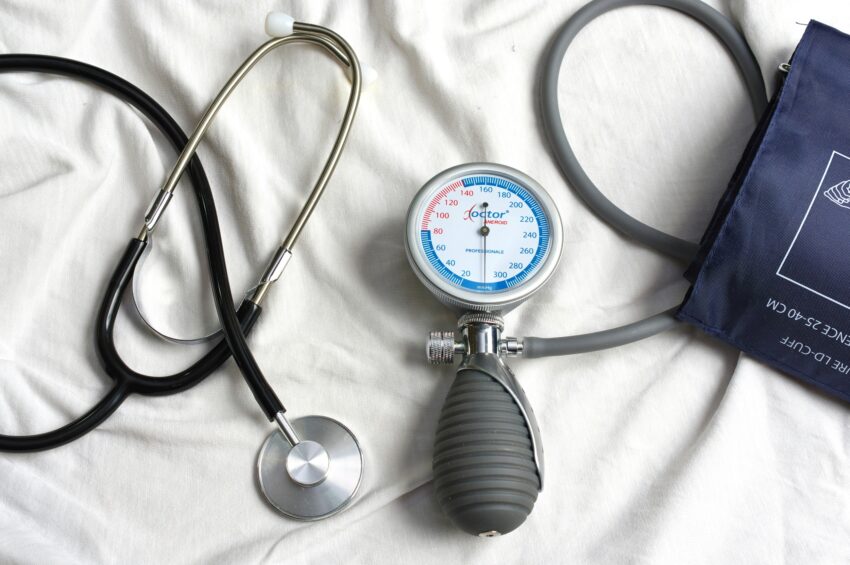Understanding High Blood Pressure and the Role of Gut Health
High blood pressure, also known as hypertension, affects millions of people worldwide. It is a leading risk factor for heart disease and stroke. While diet, stress, and lifestyle have long been recognized as major contributors, recent research highlights an intriguing new player: the gut microbiome. Scientists are uncovering how the bacteria in our digestive system may influence blood pressure regulation, opening doors to more holistic approaches for prevention and treatment.
How Does the Gut Microbiome Influence Blood Pressure?
The gut microbiome refers to the vast community of bacteria, viruses, and fungi living in the human digestive tract. These microorganisms play essential roles in digesting food, strengthening the immune system, and producing compounds that impact metabolism and inflammation.
Recent advances in digestive health science suggest that these microbes may also help regulate blood pressure. When the balance between “good” and “bad” bacteria in the gut is disrupted—a condition known as dysbiosis—systemic inflammation can increase. This inflammation can weaken blood vessels, alter kidney function, and influence hormone production that regulates blood pressure.
Furthermore, gut bacteria produce metabolites such as short-chain fatty acids (SCFAs), which are vital for maintaining vascular health. Reduced production of SCFAs—often linked to decreased gut diversity—may contribute to elevated blood pressure. Studies have also identified specific bacterial strains, such as Lactobacillus and Bifidobacterium, that are associated with lower blood pressure readings. These beneficial bacteria help strengthen the gut barrier and reduce systemic inflammation.
Conversely, an imbalance favoring harmful microbes can trigger immune responses that constrict blood vessels. Collectively, these findings suggest that maintaining a healthy gut microbiome could be a key strategy in managing hypertension.
Causes and Risk Factors of High Blood Pressure
While the gut microbiome provides new insights, high blood pressure remains a complex condition influenced by multiple factors.
Genetics play a significant role. Individuals with a family history of hypertension are more likely to develop it themselves. However, lifestyle factors are equally important. Poor diet—particularly high sodium intake—excess weight, and lack of physical activity all contribute to elevated blood pressure. Sodium causes the body to retain water, increasing blood volume and placing extra stress on artery walls.
Stress is another key factor; chronic tension triggers the release of hormones like cortisol and adrenaline, which temporarily elevate blood pressure. Persistent stress can damage blood vessels and strain the heart over time.
Other conditions, such as diabetes, thyroid disorders, and kidney issues, can also lead to hypertension. Interestingly, recent research indicates that gut microbiome imbalances may interact with these traditional causes. For example, obesity-related hypertension often coincides with reduced microbial diversity and increased gut permeability, allowing toxins to enter the bloodstream and promote arterial inflammation.
This emerging evidence underscores the deep connection between digestive health and overall cardiovascular well-being.
Strategies to Control High Blood Pressure Through Lifestyle and Gut Health
Managing high blood pressure typically involves medical treatment combined with lifestyle changes. Many of these adjustments also support a healthier gut microbiome.
A diet rich in fiber, fruits, vegetables, and whole grains fosters beneficial bacteria and promotes heart health. Incorporating probiotic-rich foods such as yogurt, kefir, kimchi, and sauerkraut can help restore microbial balance. Prebiotic foods—including bananas, garlic, onions, and oats—feed good bacteria and enhance their effectiveness.
Regular physical activity offers numerous benefits: strengthening the heart, reducing arterial stiffness, and lowering stress hormones. Exercise has also been shown to increase microbial diversity, further supporting gut health.
It’s also important to limit salt intake and avoid processed foods, as excess sodium not only raises blood pressure but may alter gut bacteria composition. Stress management techniques like meditation, yoga, and breathing exercises can further help lower blood pressure and improve digestion.
Monitoring blood pressure regularly is advisable, especially for individuals with risk factors such as obesity or a family history. Emerging therapies targeting the microbiome—such as probiotic supplements and microbiota transplants—are currently under research. While promising, more evidence is needed before these approaches become mainstream options.
Conclusion
High blood pressure is a multifaceted condition influenced by genetics, lifestyle, and increasingly recognized factors like the gut microbiome. The bacteria in our digestive system may play crucial roles in regulating blood vessel health and inflammation, offering innovative avenues for prevention and treatment.
By integrating traditional lifestyle strategies with gut-friendly habits, individuals can adopt a more holistic approach to managing hypertension. As scientific understanding continues to grow, maintaining a balanced microbiome could become a vital pillar in future heart health strategies.
Frequently Asked Questions
- How does gut health affect blood pressure?
The gut microbiome influences blood vessel function, inflammation, and hormone production. A healthy gut helps maintain proper vascular tone and reduces the risk of hypertension. - Can changing gut bacteria reduce hypertension risk?
Preliminary studies suggest that improving gut microbiome balance through probiotics and a high-fiber diet may modestly lower blood pressure in some individuals. - What lifestyle changes help control high blood pressure?
Adopting a balanced diet, exercising regularly, reducing stress, avoiding smoking, and limiting alcohol intake are proven methods for effectively managing blood pressure. - Are probiotics effective for blood pressure management?
Some research indicates probiotics can help reduce systolic and diastolic pressure, though results vary. They work best when combined with other healthy habits.
